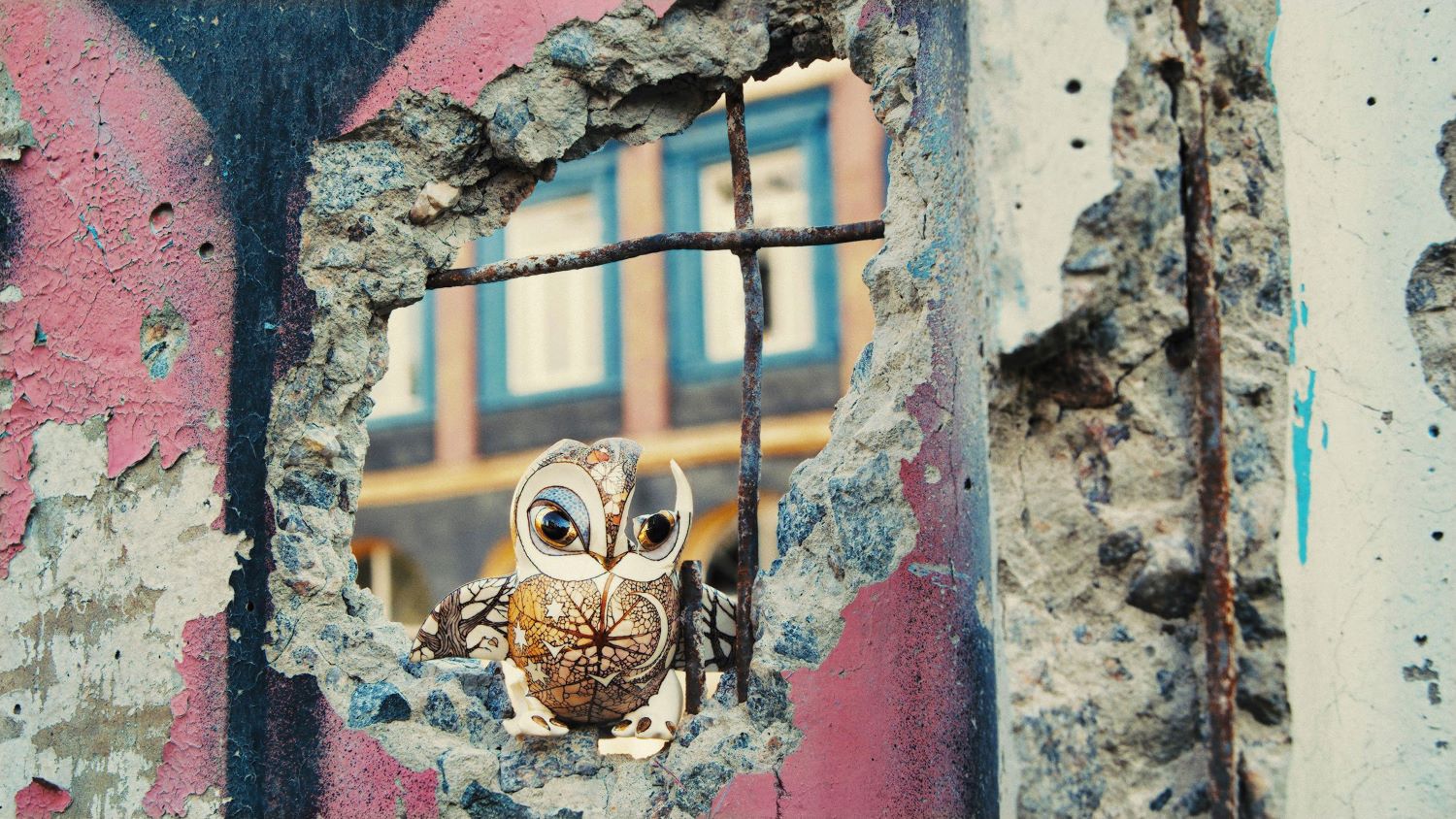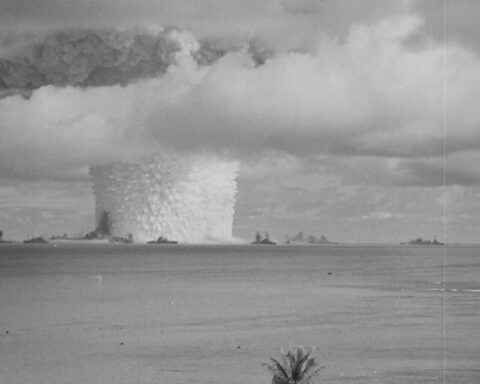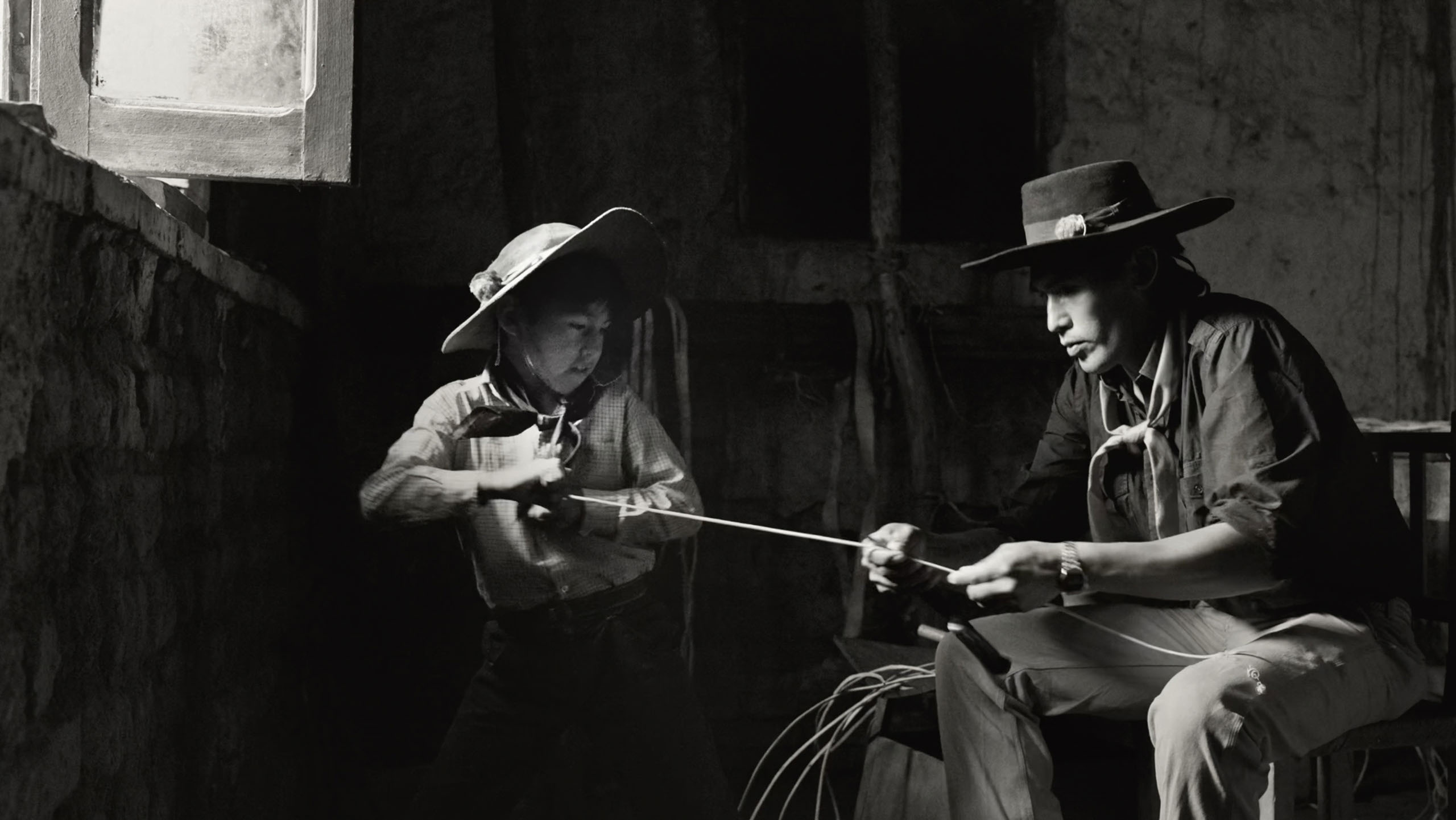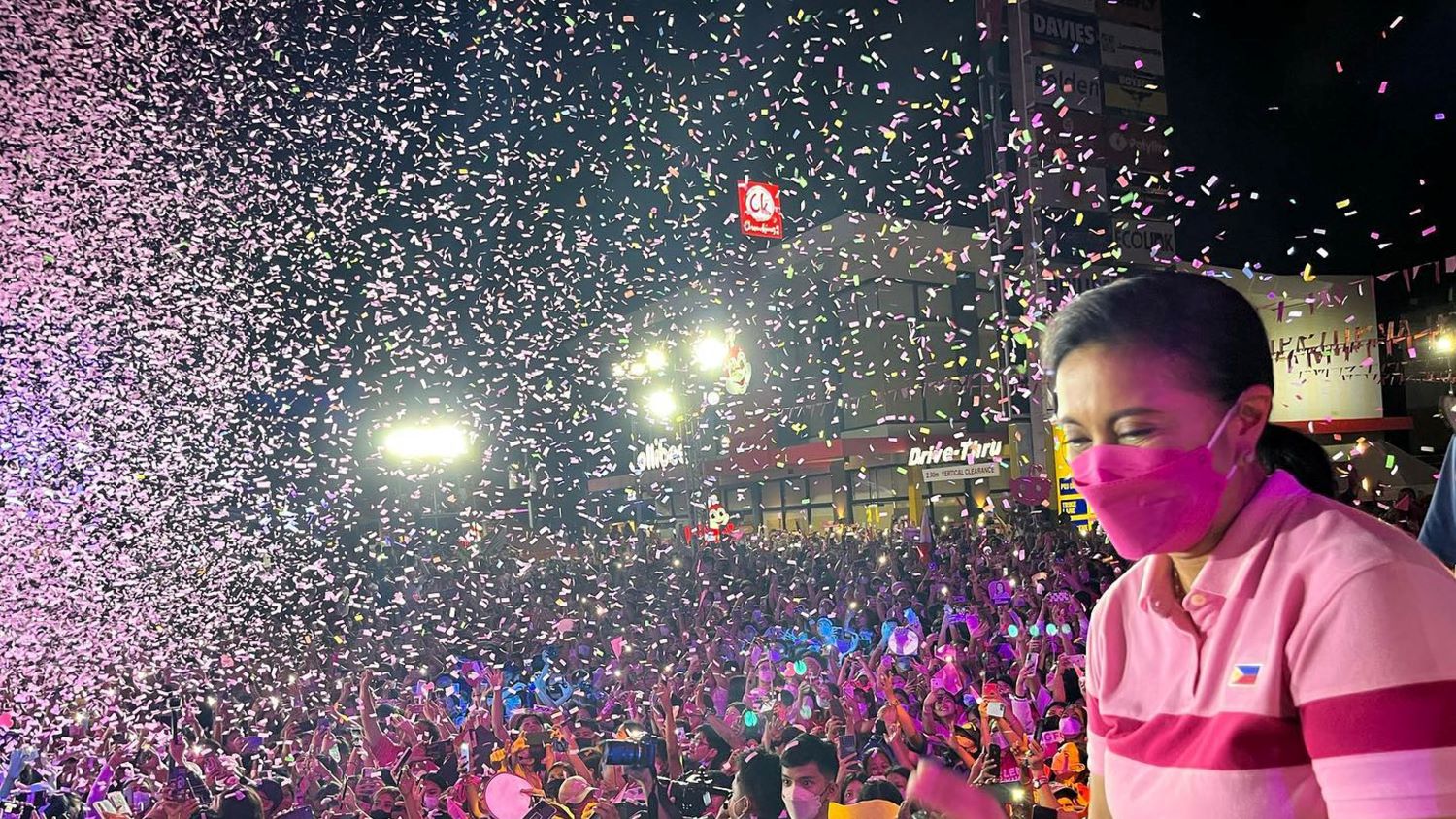Porcelain War
(USA/Ukraine/Australia, 98 min.)
Dir. Brendan Bellomo and Slava Leontyev
Program: U.S. Documentary Competition (World Premiere)
When the audience first meets Slava Leontyev, his wife Anya Stasenko, and their close friend, painter/filmmaker Andrey Stefanov in the documentary Porcelain War, they are wrapped in the lush glow of nature. Patiently observing the tranquil signs of life outdoors, including the plants and bugs that inhabit the space, the angelic setting is not what one might expect from a country enduring a brutal war.
Featuring footage filmed during the conflict by Leontyev, an artist and former Ukrainian Special Forces soldier, Porcelain War is as much a celebration of human resistance as it is a meditation on the importance of art in times of crisis. Co-directed by Brendan Bellomo, the documentary observes Leontyev, Stasenko, and Stefanov, self-proclaimed ordinary people in an extraordinary situation, as they attempt to navigate life in wartime.
The trio of artists moved to Kharkiv after Russia invaded their home of Crimea. Surrounded by the daily physical devastations that war brings, the friends use their passion for art as an act of resistance. Leontyev and Stasenko work with porcelain: he constructs the shapes (e.g., owls, snails, etc.) while she paints vibrant mosaics on them. They love working with the material because, while fragile, porcelain is everlasting.
Leontyev uses porcelain as a metaphor for the Ukrainian people as well, claiming that they are “easy to break, but impossible to destroy.” One feels this sense of national pride throughout every frame of the documentary—admittedly, almost to its detriment. When the film isn’t reflecting on the artists’ once0peaceful existence in Crimea, Porcelain War provides a stunning firsthand look at the battle on the frontlines.
The viewer not only observes Leontyev, a top marksman, training other soldiers to hone their skills, but also drone footage of the bombing of Russian tanks and real-time GoPro images of the ground assaults on which the Ukrainian Special Forces embark. Offering a visceral account of both the dangerous and mundane aspects of war, the film makes clear that it is average citizens (e.g., farmers, bankers, teachers, etc.) who have taken up arms and are piloting drones to defend the land they love.
While it is remarkable to think how well these civilians-turned-amateur-soldiers have faired against the highly trained Russian army, Leontyev’s proximity to the unfolding war tends to skew how it is presented in the film. Flying a little too close to the sun at times, the documentary walks a fine line between praising the resilience of Leontyev’s people and serving as a propaganda tool for the Ukrainian army. At one point, even Anya remarks that it is the “soldiers holding the umbrellas over us” as she reflects on the citizens’ ability to live a semblance of a normal life as terror rains down on them.
Although Leontyev and Bellomo incorporate moments when the former openly acknowledges the destructive nature of the weapons the fighters use to defend their land, the stylized and heroic portrayal of their role in the fight is more pronounced.
Porcelain War is far more intriguing when it goes beyond the battlefield and observes how war infiltrates daily life. Whether highlighting the landmines they find in a picturesque forest, or touching on Stefanov’s desire to reunite with his two daughters that had to flee the country, it is here where the human element is most felt.
A visually vibrant work, one that strategically incorporates animations to convey the horrors of the past, Bellomo and Leontyev capture both the horrors of war and the beauty of nature with equal measure. Similar to the material itself, Porcelain War shows the fragility and strength of the human spirit.














